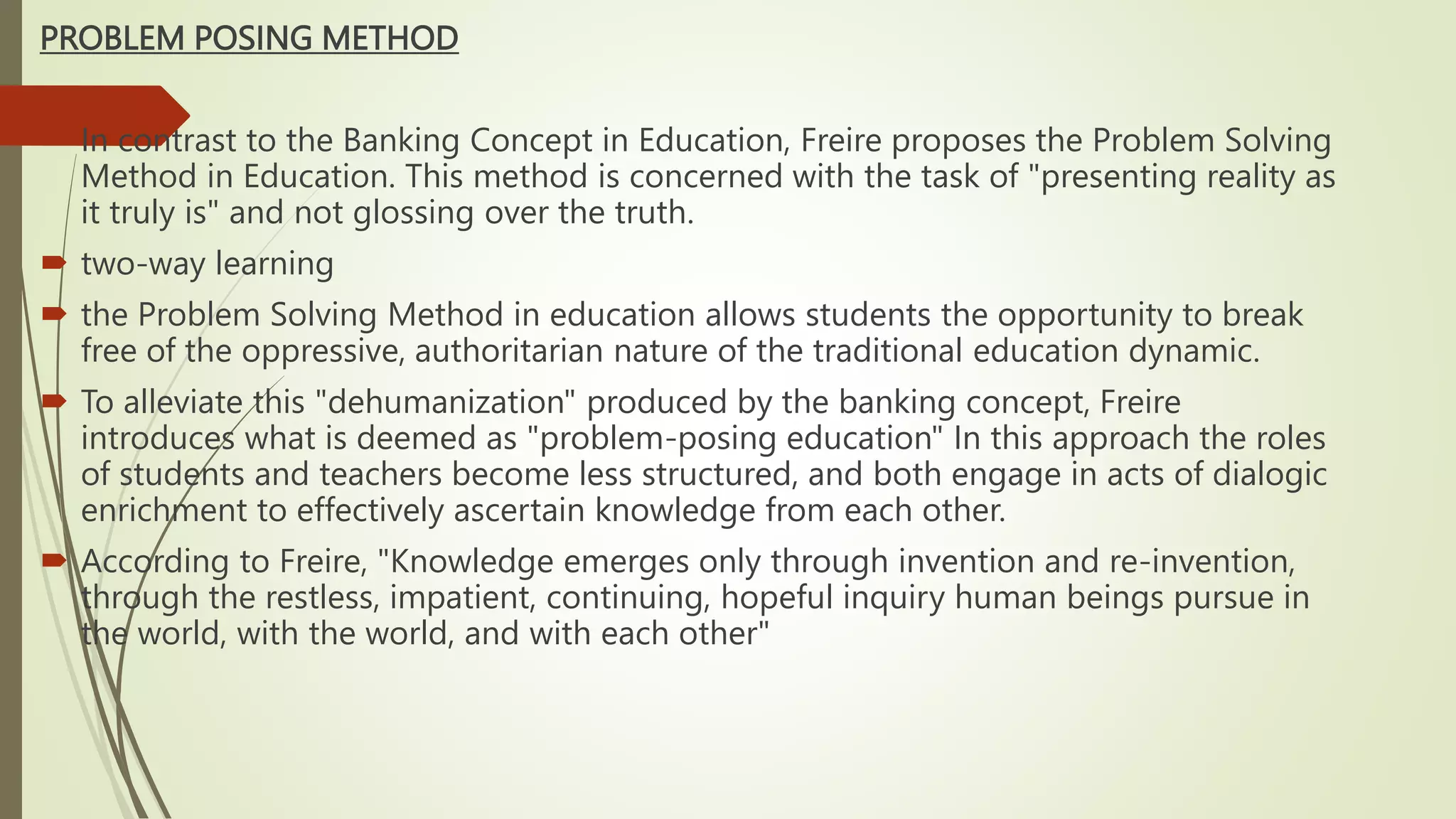Paulo Freire's 'Pedagogy of the Oppressed' critiques traditional educational methods, specifically the 'banking concept' of education, which views students as passive recipients of knowledge, reinforcing oppression. Freire advocates for a 'problem-posing' education model that fosters dialogue, critical consciousness, and mutual respect between teachers and students, empowering individuals to transform their reality. His work highlights the importance of conscientization, emphasizing that true liberation comes from recognizing and acting against oppression through collaborative learning.


























![ This means that true comprehension can only be fashioned though conversation, questioning, and
sharing of one's interpretations by all persons in the classroom Within this concept Freire calls for an
equal playing field, "It [problem-posing education] enables teachers and students to become subjects of
the educational process by overcoming authoritarianism and an alienating intellectualism](https://image.slidesharecdn.com/paulofreire-230912132949-8da8e4b9/75/PAULO-FREIRE-pptx-27-2048.jpg)

![ For Freire, dialogue was a key component of problem-posing education, Dialogue, he wrote, is "the
encounter between men, mediated by the world, in order to name (that is, to change] the world
According to Freire, problem-posing education can only occur within egalitarian, respectful relations,
dialogue cannot occur between those who want to name the world and those who do not wish this
naming-between those who deny other men the right to speak their word and those whose right to
speak has been denied to them. Those who have been denied their primordial right to speak their word
must first reclaim and prevent the continuation of this dehumanizing aggression.
In problem posing the relationship between student and teacher changes](https://image.slidesharecdn.com/paulofreire-230912132949-8da8e4b9/75/PAULO-FREIRE-pptx-29-2048.jpg)









